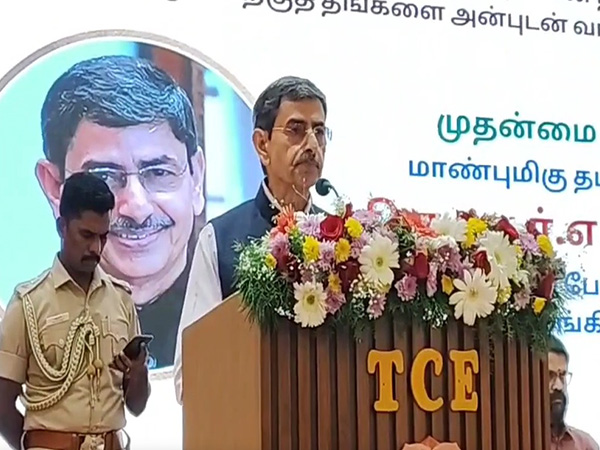"Waqf bill has ended monopoly": Jyotiraditya Scindia lashes out at opposition
Apr 09, 2025

Gwalior (Madhya Pradesh) [India], April 9 : Union Minister Jyotiraditya Scindia lashed out at the opposition parties over their dissent against the recently passed Waqf Amendment Bill of 2025, saying that the opposition intends to run a "monopoly", which would be exposed by Prime Minister Narendra Modi and the Bharatiya Janata Party (BJP)-led government in the centre.
Scindia credited the Waqf bill with "ending" the monopoly and said the Waqf properties would be used for the public's welfare.
"The opposition wants to run a monopoly and wants to misuse things. The Prime Minister and the BJP government will expose them. Using Waqf properties for the welfare of the public is the ideology of everyone. Some people did not want the good use of Waqf, and this Bill has ended their monopoly," Scindia told reporters here.
PM Modi on Tuesday said that Waqf legislation would ensure dignity for all, especially the marginalised, and accused Congress of "appeasement politics".
PM Modi said "appeasement politics" has been a significant challenge to India's growth. Referring to the recent amendment to the Waqf-related laws passed by Parliament, the Prime Minister noted that the debate surrounding Waqf stems from the politics of appeasement, which is not a new phenomenon.
The Prime Minister said that Congress gained power through appeasement politics, and some extremist leaders made wealth. However, he questioned what the common Muslim received in return. He highlighted that poor and marginalised Muslims were left with neglect, illiteracy, and unemployment.
Meanwhile, people from the Muslim community organised a protest in Manipur's Bishnupur, demanding an immediate repeal of the Waqf Amendment Act. People took to the streets, holding banners and raising slogans while demanding immediate repeal of the act.
On April 5, President Droupadi Murmu gave her assent to the Waqf (Amendment) Bill, 2025, which was passed by Parliament during the budget session. The President also gave her assent to the Mussalman Wakf (Repeal) Bill, 2025.
The Waqf Act has sparked controversy as opposing parties approach the Supreme Court to contest the bill's provisions, which they argue could have significant implications for the management of Waqf properties.
Congress and AIMIM, AAP and others have initiated their legal battle against the bill in the Supreme Court, expressing concerns over its potential impact on the management and oversight of Waqf properties in India.
The Waqf (Amendment) Bill, 2025, was passed. It seeks to focus on improving the management of waqf properties, empowering stakeholders relevant to this, improving the efficiency of the survey, registration, and case disposal process, and developing waqf properties.
While the core purpose remains to manage waqf properties, the aim is to implement modern and scientific methods for better governance. The Mussalman Wakf Act of 1923 was also repealed.


















